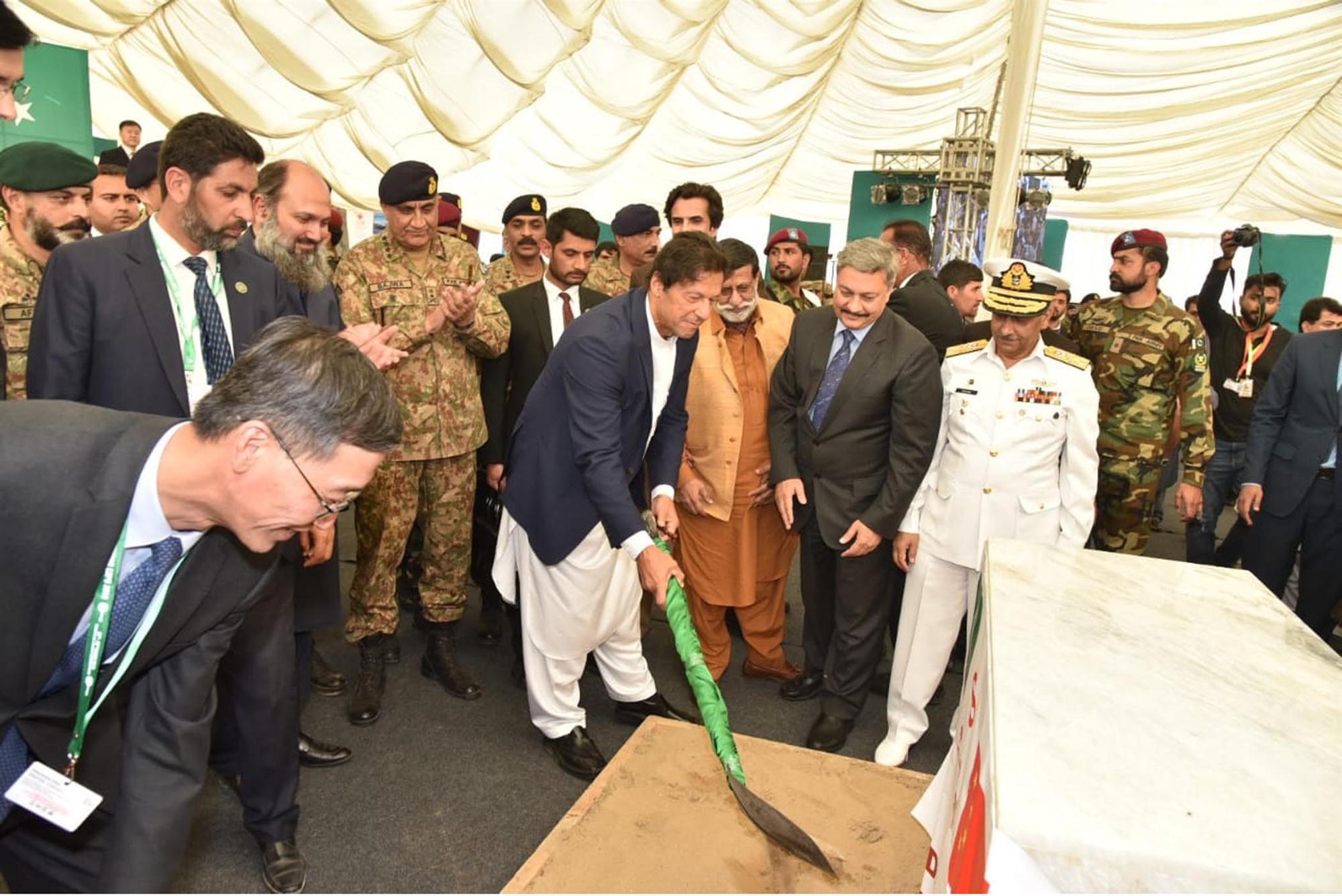Two very different responses have emerged in South Asia to China’s Belt and Road Initiative, with India’s hostile rejection contrasting to Pakistani enthusiasm.
Even last year’s change of government in Islamabad is unlikely to alter Pakistan’s support for the China-Pakistan Economic Corridor (CPEC), an infrastructure bundle including a rail link, roads, power and finance connecting Gwadar Port in western Pakistan with the Chinese frontier in the far north.
The bundle comprises modern transportation networks linking the ports of Gwadar and Karachi and a 1,100-kilometre motorway between Karachi and Lahore and between Rawalpindi and the Chinese border.
Current emphasis, according to a CPEC statement, is the Karachi Circular Railway (KCR) and improvement of Pakistan’s railway, particularly the Karachi-Peshawar main line, which is to be upgraded to allow trains to travel at up to 160 km per hour by December 2019.
In April, Mukhdum Khusro Bakhtyar, federal minister for planning, development and reform, said at the 2nd Belt & Road Forum for International Cooperation in Beijing that the CPEC is now entering into its second phase, with focus on industrial Cooperation, trade, agriculture and socio-economic development. He said that increases in trade, investment and financial flows would bring peace and prosperity to the region through enhanced competition reducing regional disparities and social inequality.

Khusro Bakhtyar said that currently 22 projects are undergoing fast implementation, faster in pace in comparison with any other corridor of the BRI initiative, making CPEC the central corridor of the initiative.
CPEC is not without controversy but is also not without reason. Pakistan needs a lot of new hardware, as Abdul Qadir Memon, consul general of Pakistan in Hong Kong and Macau, said in a speech last year to the Hong Kong Foreign Correspondents’ Club.
“[It’s] one of the few areas where there is full consensus. All of the political parties are committed,” said Memon. “The new government has not questioned any [of its] projects.”
There are several reasons why Islamabad has thrown so much support behind the CPEC, beyond the fact that it needs new roads and rail, but much of it comes down to money. At the moment, China is offering what the Americans aren’t and what multilateral financial institutions (MFI) such as the World Bank and IMF don’t: cheaper money.
“China has shown lots of flexibility. [Its] interest rate is much lower than what we have been paying [the MFI],” said Memon.
Funding is also not a huge one-off grant from Beijing coming with lots of strings attached, he said, as the funding is drawn from three different sources. One-fifth is a pure grant, with 45% being loans from the established Silk Road Fund.
The remaining 35% comes from private equity and, given how companies often are with money, might have much tighter conditions than the Chinese government grants.
This kind of investment is nothing new when it comes to Pakistan, Memon noted, referring to Pakistan’s colonial history. “We don’t see any harm if China invests in Pakistan. We don’t see them interfering,” he said.
Pakistan has “no issues,” he added, with foreign investment no matter the source, amount or form, he went on to say, just as it has “no issues” with China using Pakistani territory. Right of transit, it turns out, is a part of the deal. “Both countries have allowed free transport,” Memon said.
Debt is one of the controversies surrounding the CPEC, with some fearing the agreement will lead to Pakistan becoming a China debtor. Not so, the government’s CPEC body said in a sharply worded statement preceding Memon’s comments: “It must be clarified that CPEC projects are financed through a composite financing package comprising long-term government-to-government concessional and preferential loans, as well as grants from the government of China. Repayments on these loans would not commence in the immediate future.
“It is because of the favourable financing arrangements that Pakistan opted for Chinese investment under CPEC. China stepped forward to support Pakistan’s development at a time when foreign investment had dried up, and economic activity was being crippled by energy shortages and infrastructure gaps.”
At the moment some 25% of CPEC projects are either already completed or in the pipeline, with more projects expected to be under operation, including the groundbreaking last month for the New Gwadar International Airport, something CPEC itself is billing as “a huge milestone.”
By Michael Mackey
Correspondent | Bangkok




